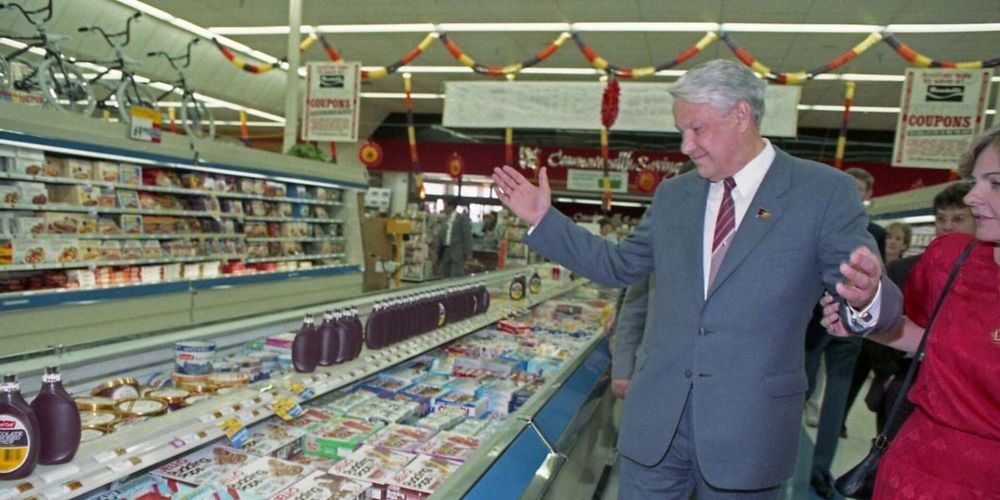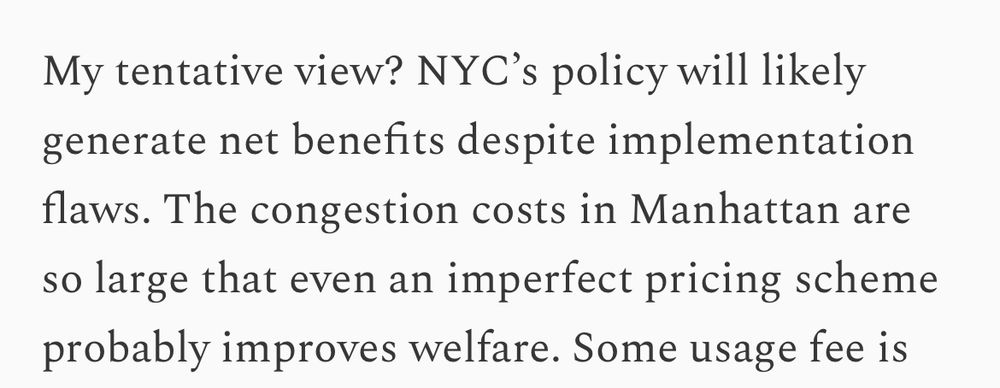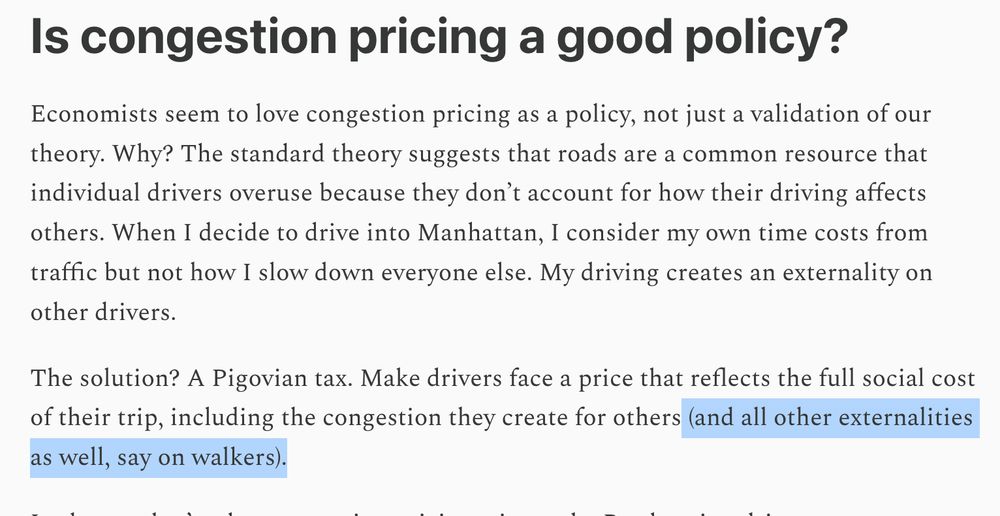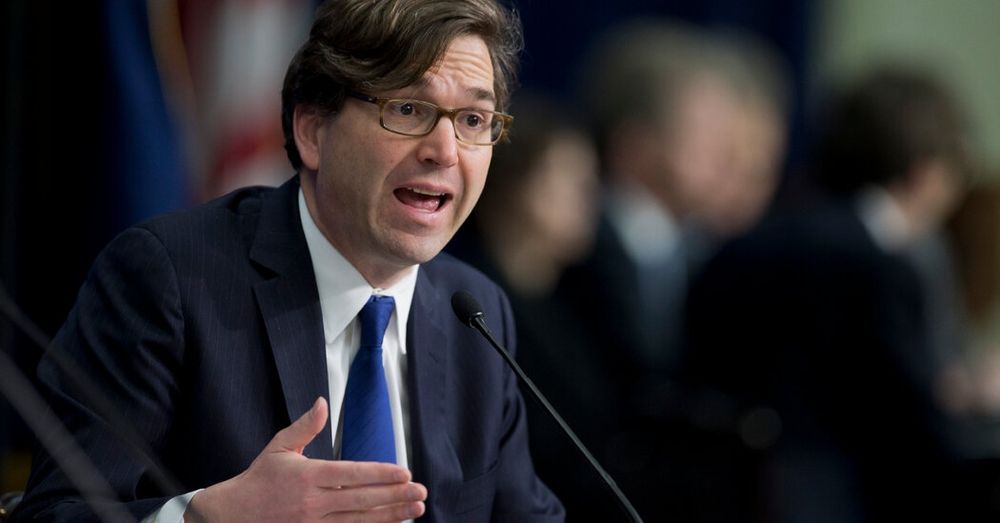
Trump’s Attacks on Institutions Threaten a Bulwark of Economic Strength
The U.S. has enjoyed a decades-long economic advantage thanks to its reputation as the safest place in the world for investors to put their money and for entrepreneurs to build their businesses.
President Trump may be chipping away at that advantage.
www.nytimes.com/2025/08/22/b... #EconSky
22.08.2025 11:59 — 👍 212 🔁 71 💬 56 📌 24

Markets must become competitive
Only through a process do markets become competitive
Markets must become competitive. The market is a process.
This is the core (pun very much intended) idea underlying the shortcut of supply and demand. www.economicforces.xyz/p/markets-mu...
21.08.2025 14:53 — 👍 4 🔁 2 💬 0 📌 0
 21.08.2025 01:11 — 👍 40 🔁 8 💬 1 📌 0
21.08.2025 01:11 — 👍 40 🔁 8 💬 1 📌 0

When I think, “what countries policies should we emulate?” I definitely think The Bahamas and Sudan www.fraserinstitute.org/sites/defaul...
20.08.2025 01:39 — 👍 9 🔁 3 💬 0 📌 1
Thanks :)
19.08.2025 13:46 — 👍 1 🔁 0 💬 0 📌 0

Opinion | You Can’t Break the Laws of Economics
Supply and demand invariably overcome any effort to defy or outsmart them.
“Let me make what appears to have become a radical argument: Simple economics is surprisingly good at making real-world predictions.”
trying to break the mold with a defense of economics
www.wsj.com/opinion/you-...
19.08.2025 01:50 — 👍 87 🔁 27 💬 4 📌 2
I love this article by @briancalbrecht.bsky.social in the Wall Street Journal (and not just because I am graciously mentioned by name). He provides a simple but powerful defense of Economics, of the supply and demand framework.
18.08.2025 23:50 — 👍 32 🔁 10 💬 2 📌 1

www.axios.com/newsletters/...
12.08.2025 17:27 — 👍 45 🔁 16 💬 1 📌 2
Very nice blog entry by @BrianCAlbrecht
Why do economists have "tariff derangement syndrome"? It's not politics—tariffs violate every principle of good taxation we've learned over the past century.
1/8
12.08.2025 00:34 — 👍 3 🔁 3 💬 1 📌 0
And in the meantime, actually add tariffs on Canada, the EU, and a bunch of other allies
09.08.2025 20:33 — 👍 7 🔁 0 💬 0 📌 0
Thanks :)
09.08.2025 20:30 — 👍 1 🔁 0 💬 0 📌 0

6 reasons why tariffs are a terrible way to raise revenue
Some principles of taxation
@briancalbrecht.bsky.social strikes again with a brilliant newsletter on why tariffs are a terrible idea. Put in very simple terms. Read it!
👉🏽 www.economicforces.xyz/p/6-reasons-...
08.08.2025 23:25 — 👍 5 🔁 3 💬 3 📌 1
I've been trying it out a bit
07.08.2025 17:31 — 👍 3 🔁 1 💬 1 📌 0

6 reasons why tariffs are a terrible way to raise revenue
Some principles of taxation
Why do economists hate tariffs more than other taxes?
Today's newsletter is 6 reasons why tariffs are a terrible way to raise revenue
tl;dr they violate all the main results of how to raise revenue efficiently www.economicforces.xyz/p/6-reasons-...
07.08.2025 17:16 — 👍 58 🔁 27 💬 4 📌 2

Will tariffs spur innovation?
Research suggests not.
Another excellent newsletter by @briancalbrecht.bsky.social on whether tariffs are likely to increase innovation, with lots of top references from empirical research (from @rjuhasz.bsky.social , David Autor, Nick Bloom, @johnvanreenen.bsky.social & others)
🔗 www.economicforces.xyz/p/will-tarif...
13.06.2025 23:10 — 👍 11 🔁 5 💬 0 📌 0

Prices are signals (and politicians keep shooting the messenger)
Economic policy insight #1: A price is a signal wrapped in an incentive.
Economics has core insights that get ignored by politicians.
The most fundamental?
A price isn't just a number—it's a signal wrapped in an incentive.
But why do policymakers need to know this?
www.economicforces.xyz/p/prices-are...
06.03.2025 15:00 — 👍 24 🔁 5 💬 0 📌 1
That's exactly my point. You want to align private and social incentives, not simply reduce traffic no matter what.
10.01.2025 15:59 — 👍 0 🔁 0 💬 1 📌 0
You're right. It's my fault and the subset of the audience who can't bother to read 1k words's fault.
10.01.2025 15:26 — 👍 0 🔁 0 💬 3 📌 0
Basically all of my replies are reenforcing why I wrote the post. People assume any reduction of an externality is good so reducing driving is necessarily good.
If that's the goal, you wouldn't shut the fee off at night
10.01.2025 15:24 — 👍 6 🔁 0 💬 12 📌 0

I'm once again asking people to read what I actually wrote www.economicforces.xyz/p/congestion...
10.01.2025 15:21 — 👍 17 🔁 1 💬 11 📌 0
I lament this change. Of course.
And I don't hold you entirely responsible for it, in case that wasn't clear.
10.01.2025 15:12 — 👍 1 🔁 0 💬 0 📌 0
Exactly my thought
10.01.2025 00:22 — 👍 1 🔁 0 💬 0 📌 0
Shifting people to MTA benefits MTA commuters? The sharing of fixed costs of the MTA is greater than the congestion costs there
09.01.2025 20:09 — 👍 0 🔁 0 💬 1 📌 0
That's not obvious at all.
09.01.2025 18:55 — 👍 1 🔁 0 💬 3 📌 0
Very weird. Sorry!
09.01.2025 18:51 — 👍 1 🔁 0 💬 0 📌 0

I acknowledge that issue. I don't think anything changes because of that. Unless you want to assume the optimal amount of driving is zero.
09.01.2025 18:48 — 👍 1 🔁 0 💬 4 📌 0
Pseudo Kyotoite, migrating to this not-too-bad platform in Feb 2025. “The concept of pass-through should not be passed through in economic analysis!" https://sites.google.com/site/takanoriadachi/
Assistant Professor of Economics
@carletoncollege. Macroeconomic expectations, monetary policy, Treasury markets, #TeachEcon
Views expressed here are not those of my employer.
https://estruby.github.io/
Economist @ University of Melbourne @unimelb.bsky.social 🇦🇺 / soon @cnrs.fr @crestumr.bsky.social 🇫🇷 • Interested in Ed, health, Social Security • excited about metascience (generalizability, replication, science policy)
https://adegendre.github.io
Professor, Western University (University of Western Ontario)
Fed and economy reporter with @reuters.com, ex-Wall Street Journal. Failed musician, guitar holdout, I really like pedals.
Currently: MD Student @UTHealthSA. Former: Associate @BCG, Clinical Trials @MDAndersonNews, External R&D @Celgene, Summer Associate, @Lux_Capital. Views my own.
Antitrust, Digital Regulation, Political Philosophy & thoughts
Assoc Professor of Strategic Management, University of Toronto; Chief Economist, Creative Destruction Lab Toronto; cofounder, AllDayTA; cofounder, NBER Innovation PhD Boot Camp. http://www.kevinbryanecon.com and @AFineTheorem on Twitter
Economist at FTC. Studying higher ed, labor, and consumer protection. Views are my own. www.michelgrosz.com
Economist @ Minneapolis Fed's Opportunity & Inclusive Growth Institute. There's a graph for that. Views are my own. (she/her) https://albrightalex.com/
I am an Economist leveraging the assignment mechanism in the field to test theory and help non-profits, govts, and anyone who will listen! My goal is to (hopefully!) change the world for the better. My picture is with my oldest son!
Dad, behavioral and neuroeconomist, sometimes good trouble
Free range historian of economics. Curator of Economics in the Rear-view Mirror (irwincollier.com)
Provost Prof. of Economics (UMass Amherst).
Inequality, labor market policies and competition.
Affiliations: NBER, IZA, MIT Shaping the Future of Work Initiative
Preorder my book, The Wage Standard: https://www.thewagestandard.com
Tech Policy Fellow at the R Street Institute. Free markets and permissionless innovation.
My market design blog: https://marketdesigner.blogspot.com/ Forthcoming in May: Moral Economics https://www.amazon.com/Moral-Economics-Prostitution-Controversial-Transactions/dp/1541702018
Economist @ Georgetown University. Also NBER and CESifo.
Trade, Spatial, and Industrial Organization.


 21.08.2025 01:11 — 👍 40 🔁 8 💬 1 📌 0
21.08.2025 01:11 — 👍 40 🔁 8 💬 1 📌 0











